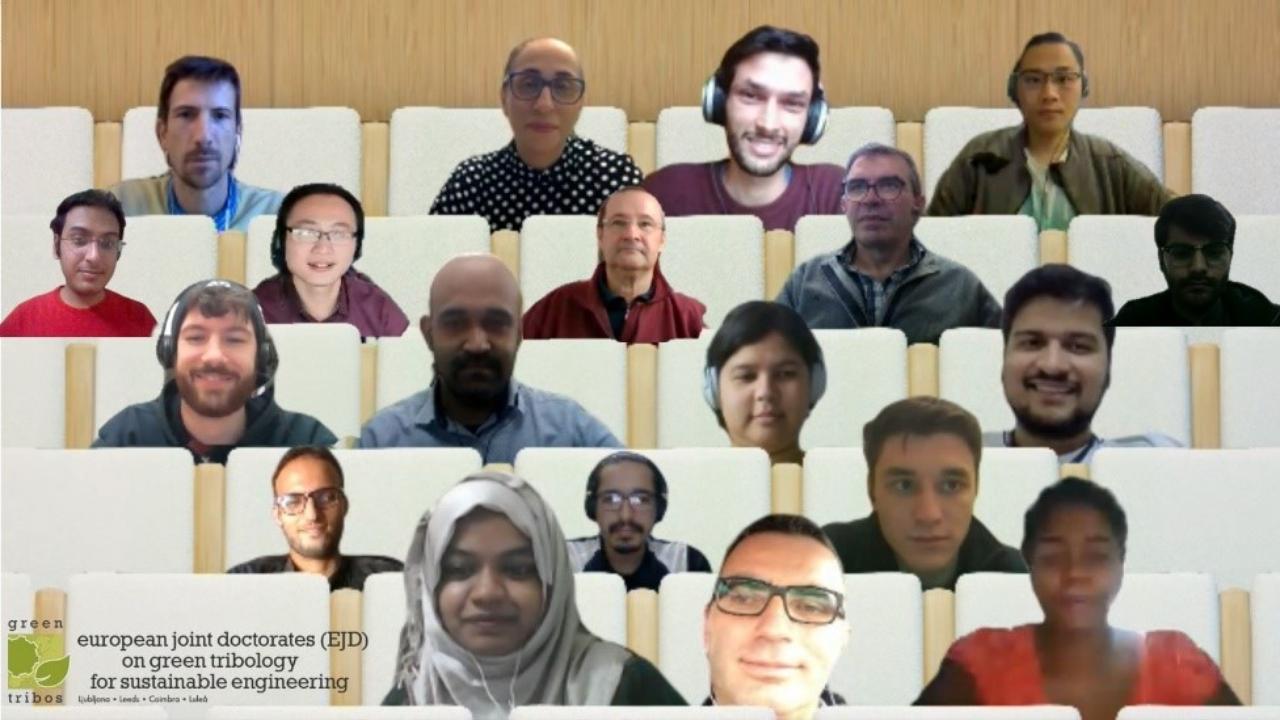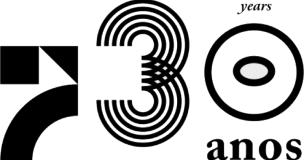GreenTRIBOS - Forefront in Science and Technology for a Green Sustainable Engineering

Green tribology is a rapidly expanding field with high scientific impact and is intersectoral in its nature. Green tribology has been enthusiastically adopted in both industry and academia, with high-impact, high-visibility studies being published in research journals like Nature and Science. However, now a shift away from a focused, case-study approach, is needed, towards a broader, European-based, vision of green-technology innovation, which can be envisaged through a doctoral training program. Considering these needs, European union approved a funding of ~ 3 million euros for an ambitious and unique joint doctorate programme – GreenTRIBOS. The project is funded under the umbrella of Marie Skłodowska-Curie Actions (MSCA).
The uniqueness of this project comes from the fact that it brings together four academic partners University of Coimbra, University of Ljubljana, University of Leeds, and Luleå University of Technology, and 26 most innovative industrial Partners from 10 countries which will work together to train 12 early stage researchers (ESRs), selected from all over the world, to become professionals in developing sustainable green solutions for tribological applications.
CEMMPRE (Centre for Mechanical Engineering, Materials and Processes) of the University of Coimbra, holding a vital position in the world of Tribology, is one of the core members and stake holders in the GreenTRIBOS consortium. The University of Coimbra is the mother institution for 3 ESRs and will be co-hosting other 3 ESRs, one from each academic partners to further enhance the dissemination of skills and knowledge. The University of Coimbra will be directly collaborating with several industries and organizations of Portugal (Huf, TEandM, IPN, UMinho, UA and Quercus) for the state of the art training of these ESRs and upscaling of the developed sustaibanle green solutions.
In GreenTRIBOS work plan, the ESRs will work in three science-based work packages to develop integrative green concepts, their functional mechanisms, and lifecycle analyses to verify the sustainability, as well as quantifying the tribological performance to reduce energy consumption, resource depletion and polluting emissions. The details of research projects are presented in the following link https://www.greentribos.eu/research-projects/.
GreenTRIBOS Project Kick-Off meeting and 1st Network Wide Event
In coordination with other universities, GreenTRIBOS Kick-off meeting and the 1st NWE (network training event) were successfully organized by University of Leeds, UK on October 19th – 30th, 2020. The 2 week event was held online via Teams application. This is how we all greatly contributed towards Covid19 pandemic issues. The prescriptions and regulations of EU governments were fully accomplished and direct contacts were reduced. By switching to online an important impact towards greener environment was achieved.
Professor Dr. Albano Cavaleiro and Professor Dr. Bruno Trindade from CEMMPRE, University of Coimbra addressed the consortium members and ESRs. They welcomed all the members and also shared valuable research knowledge and tips regarding coating manufacturing, tribology and green engineering solutions with the ESRs. Additional opening remarks were given by Dr. Stojan Sorčan, from MSCA and Prof. Mitjan Kalin, from Ljubljana University, the coordinator of the project. They expressed their support and pride towards the GreenTRIBOS and wished a fruitful collaboration in the future.
Kick-off meeting was organized to show the project plan and its organizational structure. The deliverable plan and work packages were presented, and the sub-projects were refreshed. The ESRs had chance to introduce themselves and got known each other, since they will jointly work on various aspects of green tribology. Overall, the meeting was encouraged and fruitful. In addition, it was a pleasure to see all the supervisors and ESRs together for the first time.
The plan for the 2nd NWE to be organized by the Faculty of Mechanical Engineering, University of Ljubljana and the future work plans of the ESRs were discussed at the end of the meeting. We look forward to the 2nd NWE where the progress and first from ESRs will be presented and discussed





